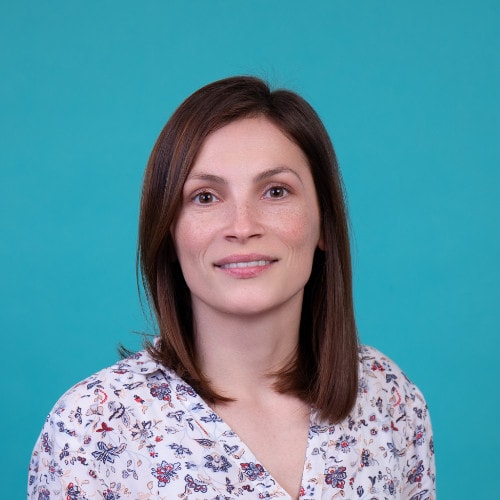What kind of work did you dream to do at high school? Were you thinking back then, that you would work in IT?
I was dreaming of working in Marketing as this was the most interesting and modern area I discovered while studying at Economic studies highschool.
Back then, I knew little about the IT industry and even though I was good at mathematics I didn’t see myself becoming an Engineer because in my mind Engineers were a group of old men working in a basement with obsolete and unattractive systems.
How did you get into the world of technologies? Did you study IT or did life bring you there?
I chose to study Marketing due to my interest in customer & user experience, user psychology, and user engagement. Soon after, I was looking for a structure and a base for how companies are running, so I quickly followed a Masters in Management.
I started my career with a back-office job in a bank which further launched me towards a career change in IT. The repetitive tasks were often boring and prone to human error for me but I was thriving when I was handling complex loan cases. This is how I first got in touch with the software development teams in the bank – they needed an enthusiast who knows the systems well in order to perform user acceptance testing and help them design changes in the banking systems.
Did your family and friends support your decision to join the tech world?
Most of them yes, though my parents were a bit concerned about letting go to a job in a bank, which looked very stable at that time.
Please tell us a little more about your work. Why do you love it?
Contributing to software that helps end-users and brings value or joy in their life is very rewarding for me and that’s why I love the work I do. Today, as a manager, my contribution is around driving teams to perform by stimulating collaboration, stimulating personal and professional growth, helping the teams to break down complex projects or ideas into manageable tasks.
What does your company do?
The company I work for is acting in the Trust economy and is an online ratings and reviews platforms. The platform empowers consumers and companies to collaborate, it helps consumers to make better purchasing decisions and enables companies to improve their services.
What do you like about working in IT?
I never get bored. There is always something new to learn or new challenges to resolve.
Also, collaboration is crucial in IT projects and it’s amazing and rewarding to see people coming together for common goals. Of course, sometimes collaboration requires many efforts and this is a challenge that I also like.
What are the advantages from your point of view?
Many IT companies have a flexible schedule and they are more agile or at least want to become more agile. Working in an agile environment stimulates you more.
Working in IT helps understanding better some of the world’s challenges today and in the future, as data privacy for example.
And usually, when working in IT, there are many more career opportunities: think about how many technologies and tools are there, skills or roles needed.
What is the ratio of men vs women at your team? Would you change it?
There are teams where 1 in 4 is a women or 1 in 9 is a women or 0 in 5 is a woman. Overall, there are more men than women and yes, I would change it. I’m already actively contributing to an employee-driven initiative inside the company I work for, focused on women in leadership.
Have you ever experienced any prejudice towards you?
Yes, I experienced gender and age prejudice. And the gender prejudice was different from one country to another.
Would you want more women in IT? Why?
Yes, I would like to see more women in IT.
Girls and women are users of the software released every day by IT companies and I want these users to be represented among those who build the software and this goes further to other social groups. A lot of perspectives and innovative ideas are missed due to this unbalanced working environments.
Also, thinking about the women working today in IT, in many cases they probably feel lonely.
Dana Aonofriesei vystupovala na konferencii Testing United 7. – 8.11. vo Viedni, ktorú organizuje firma KRONE consulting services.

